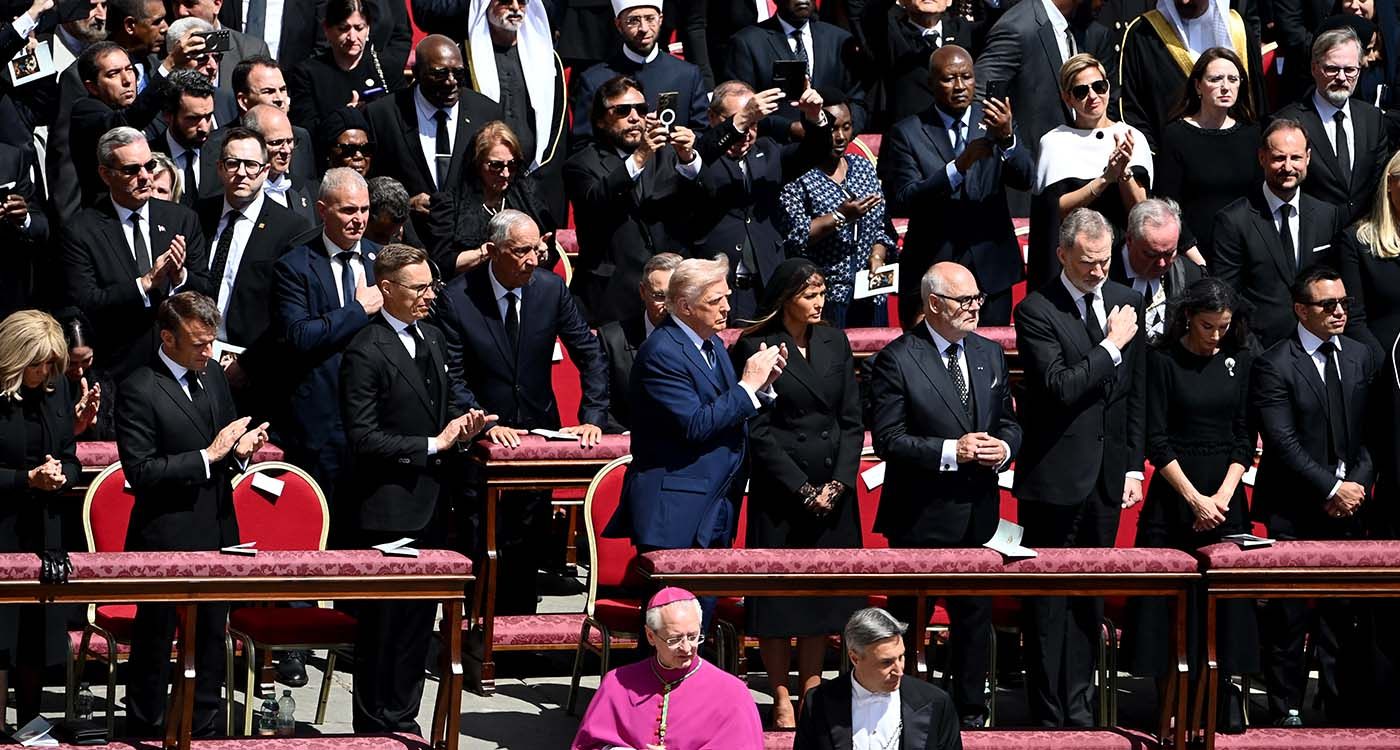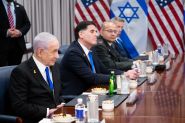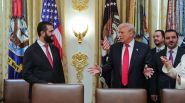- Home
- Middle East
- Geopolitical Variations and Political Challenges

©Isabella BONOTTO / AFP
The past week was replete with events that cannot be overlooked if we are to address critical conflicts around the world: the death of Pope Francis and its reverberations ; the evolutions of the Ukraine war ; the ultimate scope of the US-Iranian negotiations; the shifting facades of Turkey’s Islamic authoritarianism; and the normalization scenarios in Lebanon, Gaza, and Syria. The unifying thread tying these events together is their incidence on the international scene.
The funerals of Pope Francis have amply demonstrated the powerful presence of the Catholic Church on the world stage and its critical role in peace advocacy and negotiated conflict resolution ; its moral authority and ability to project itself as a major actor in the contemporary debates about fundamental human rights, ecological issues, international justice, integrated development, and interreligious dialogue… The attendance of the funerals of Pope Francis by worldwide political and religious dignitaries and the unanimous presence of the Western world's political and religious leaders testify to its federating and central role in weaving the intellectual narrative of Western democracies and their normative consensuses. The French journal Le Monde titles its issue “The funerals of Pope Francis transform Rome into the center of the world,” while Il Messaggero replicates “Rome, the center of the world.”
The ministry of Pope Francis was quite compelling, featuring the healing and inspiring mandates of the Gospel in a tormented world and the significant contributions of contemporary Catholicism in promoting peace and justice through active advocacy and ministries. The big challenge of the forthcoming conclave is to measure up to the achievements of the contemporary papacy and to pursue the transformative dynamics of the Vatican II council.
The very inspiring picture, which conveyed the duo between Presidents Trump and Zelensky, showcases the efficacy of the Holy See’s diplomacy, the symbolism of St. Peter’s Basilica as a venue for peace and reconciliation, and the federating role of the papacy in the search for peace at a time when international events plead to the contrary. This moment of grief reflects the continuing ministry of peace and reconciliation pursued by Pope Francis and his predecessors. In counterpart, it highlights the cultural divides between the Western democracies and their totalitarian nemeses. Their absence mirrors the normative differences and their strategic repercussions. Whatever might be the political and ideological differences within the Western political realm, political and civil actors are, by and large, bound by a common civility.
The circumlocutions of the US-Iranian negotiations are not accidental ; they reflect the cultural divides and the strategic differences between the protagonists. Aside from the tactical and technical aspects of the negotiations, the normative discrepancies lie at the roots of this conflict. The US is on the search for a comprehensive solution that puts an end to the conflict dynamics and their destructiveness. The Islamic regime in Tehran is hell-bent on saving its future, safeguarding its totalitarian controls over a rebellious civil society, and restoring its unraveling imperial domain.
In its attempt at narrowing the scope of negotiations to the single issue of setting the thresholds of uranium enrichment and its monitoring mechanisms, the Iranian regime tries to forestall two mortal issues : the liberalization of the Iranian civil society as the functional equivalent of international normalization and the destruction of its imperial nodes throughout the Middle East. One wonders whether the reproduction of erstwhile failed scenarios is worth considering when this whole totalitarian dystopia is imploding.
The same reservations apply to the Turkish strategic ambivalence bent on consolidating the Islamic autocracy and the neo-Ottoman imperial policy. The faked accusations of corruption and the arbitrary detention of the Turkish opposition leader and the imperial inroads in Syria are quite symptomatic of the totalitarian and imperial proclivities. One wonders whether Western democracies can turn a blind eye to these evolutions without endangering their security and compromising the future of Turkish oppositions that are quite vocal about their liberal orientations and pro-Western alignments. Political reservation is becoming irrelevant, risky, and hardly defensible.
The perpetuation of this state of equivocation is detrimental to the liberalization of Turkey and to the stabilization of Lebanon, Gaza, and Syria. Lebanon’s normalization is hobbled by Hezbollah and the determination of the Iranian regime to reinstate its imperial dominion in the Near East and, alternatively, by the rising Turkish imperial inroads. The Gaza war features the tragedy of the instrumentalization of the Palestinian question by Muslim and Arab power politics and the inability of the alternating Palestinian leaderships to engage Israel through renewed diplomatic mediations. Otherwise, the ongoing political transformations in Syria are challenged by the international jihadists from within, the Turkish power projections, the Israeli containment policy, and the return of chaos attempted by Iran’s proxies. Unfortunately, none of these political environments is permeable to democratic conflict resolution, the abidingness of human rights, and the pertinence of constitutional governance. Political challenges overlap with cultural challenges.
Read more




Comments